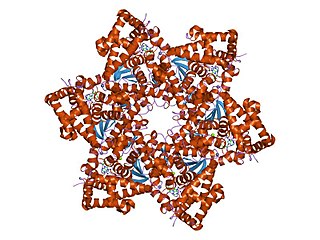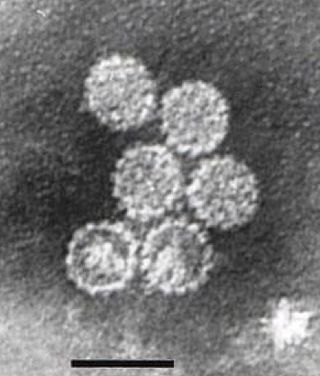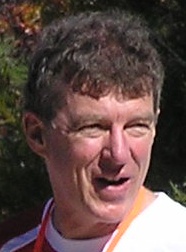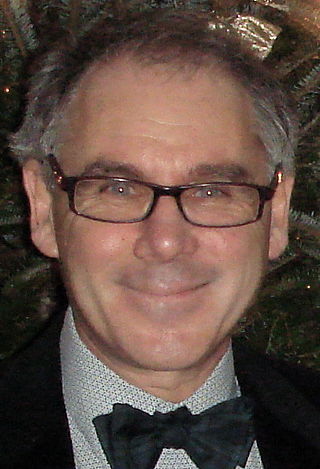Related Research Articles

Human papillomavirus infection is caused by a DNA virus from the Papillomaviridae family. Many HPV infections cause no symptoms and 90% resolve spontaneously within two years. In some cases, an HPV infection persists and results in either warts or precancerous lesions. These lesions, depending on the site affected, increase the risk of cancer of the cervix, vulva, vagina, penis, anus, mouth, tonsils, or throat. Nearly all cervical cancer is due to HPV, and two strains – HPV16 and HPV18 – account for 70% of all cases. HPV16 is responsible for almost 90% of HPV-positive oropharyngeal cancers. Between 60% and 90% of the other cancers listed above are also linked to HPV. HPV6 and HPV11 are common causes of genital warts and laryngeal papillomatosis.

Papillomaviridae is a family of non-enveloped DNA viruses whose members are known as papillomaviruses. Several hundred species of papillomaviruses, traditionally referred to as "types", have been identified infecting all carefully inspected mammals, but also other vertebrates such as birds, snakes, turtles and fish. Infection by most papillomavirus types, depending on the type, is either asymptomatic or causes small benign tumors, known as papillomas or warts. Papillomas caused by some types, however, such as human papillomaviruses 16 and 18, carry a risk of becoming cancerous.

Cervical intraepithelial neoplasia (CIN), also known as cervical dysplasia, is the abnormal growth of cells on the surface of the cervix that could potentially lead to cervical cancer. More specifically, CIN refers to the potentially precancerous transformation of cells of the cervix.

Human papillomavirus (HPV) vaccines are vaccines that prevent infection by certain types of human papillomavirus (HPV). Available HPV vaccines protect against either two, four, or nine types of HPV. All HPV vaccines protect against at least HPV types 16 and 18, which cause the greatest risk of cervical cancer. It is estimated that HPV vaccines may prevent 70% of cervical cancer, 80% of anal cancer, 60% of vaginal cancer, 40% of vulvar cancer, and show more than 90% efficacy in preventing HPV-positive oropharyngeal cancers. They additionally prevent some genital warts, with the quadrivalent and nonavalent vaccines that protect against HPV types HPV-6 and HPV-11 providing greater protection.

Ian Hector Frazer is a Scottish-born Australian immunologist, the founding CEO and Director of Research of the Translational Research Institute (Australia). Frazer and Jian Zhou developed and patented the basic technology behind the HPV vaccine against cervical cancer at the University of Queensland. Researchers at the National Cancer Institute, Georgetown University, and University of Rochester also contributed to the further development of the cervical cancer vaccine in parallel.
Cervarix is a vaccine against certain types of cancer-causing human papillomavirus (HPV).
Margaret Anne Stanley, OBE FMedSc, is a British virologist and epithelial biologist. She attended the Universities of London, Bristol, and Adelaide. As of 2018, she is an Emeritus Professor of Epithelial Biology in the Department of Pathology at the University of Cambridge and a Fellow of the Academy of Medical Sciences. She is also an Honorary Fellow of the UK Royal College of Obstetricians and Gynaecologists and an honorary fellow of Christ's College, Cambridge. Stanley is a research scientist in virology focusing on the human papillomavirus (HPV). Her research work has led to new scientific findings on HPV. Additionally, she uses her expertise on HPV to serve on multiple advisory committees and journal editorial boards.

Georgetown University Medical Center is a Washington, D.C.-based biomedical research and educational organization affiliated with Georgetown University that is responsible for over 80% of the university's sponsored research funding and is led by Edward B. Healton, MD, the Executive Vice President for Health Sciences and Executive Dean of the School of Medicine.
Colin Robert Andrew Laverty was an Australian medical practitioner and was the first to confirm that the human papillomavirus was much more common in the cervix than previously thought and, in 1978, he suggested that this virus be considered as possibly involved in the causation of cervical cancer. He was also a prolific art collector.

Harald zur Hausen NAS EASA APS was a German virologist. He carried out research on cervical cancer and discovered the role of papilloma viruses in cervical cancer, for which he received the Nobel Prize in Physiology or Medicine in 2008. He was chairman of the German Cancer Research Center in Heidelberg.

Professor Henry Kitchener, MD FRCOG FRCS(Glas) FMedSci, is a leading British expert in gynaecological oncology, based at the University of Manchester. He is a fellow of the Academy of Medical Sciences.
Jian Zhou was a Chinese virologist and cancer researcher, who with fellow researcher Ian Frazer, invented Gardasil and Cervarix, the vaccines for stimulating human immunological resistance to the cervical cancer-inducing human papilloma virus.
Diane Medved Harper is a United States professor in the Department of Family Medicine at the University of Michigan. Her area of expertise is human papillomavirus (HPV) and the diseases associated with it, as well as colposcopy, and she was one of the investigators in the clinical trials of Gardasil and Cervarix, vaccines against HPV.
Anna-Lise WilliamsonMASSAf is a Professor of Virology at the University of Cape Town. Williamson obtained her PhD from the University of the Witwatersrand in 1985. Her area of expertise is human papillomavirus, but is also known on an international level for her work in developing vaccines for HIV. These vaccines have been introduce in phase 1 of clinical trial. Williamson has published more than 120 papers.
Lutz Gissmann is a German virologist and was head of the division Genome Modifications and Carcinogenesis at the German Cancer Research Center (DKFZ) in Heidelberg until his retirement in 2015. Lutz Gissmann is known for his seminal research in the field of human papillomaviruses (HPV) and their causal association with human cancer, especially cervical cancer. In his early work, he demonstrated genetic heterogeneity among HPV isolates leading the way to the now well-established concept of distinct HPV types of which some are associated with specific benign or malignant disease. In the early 1980s in the laboratory of later Nobel Prize laureate Harald zur Hausen he was the first to isolate and characterize HPV16 and HPV18, the two most oncogenic HPV types causing the vast majority of HPV-induced anogenital and head-and-neck cancers. This groundbreaking work of Lutz Gissmann provided experimental evidence for the causal association of specific HPV types with human cancer, and laid the foundation for the development of prophylactic HPV vaccines for the prevention of cervical cancer and other HPV-induced cancers. His current research interest is on development of second generation prophylactic and therapeutic HPV vaccines.
Maria Saveria Campo FRSE, known as Saveria, is an Italian viral oncologist, known for being the first person to demonstrate an effective papillomavirus vaccine. She developed the vaccine alongside her colleague at the University of Bristol, England, Dr. Richard B.S. Roden. She went on to be recognized for her work and was awarded the position of Fellow of the Royal Society of Edinburgh in 2006. She has worked continuously in the field of Oncology up until her retirement.
Nubia Muñoz is a Colombian medical scientist and epidemiologist, whose research has been instrumental in establishing that human papillomavirus (HPV) infection is the primary cause of cervical cancer which has led to the development of a vaccine that is capable of preventing 70% of all cervical cancers.
Magnus von Knebel Doeberitz is a molecular oncologist and virologist, a professor of molecular oncology and medical director of the Department of Applied Tumor Biology at the Institute of Pathology at the University Hospital of Heidelberg. He also heads a Clinical Cooperation at the German Cancer Research Center.
Michelle Adair Ozbun is an American molecular virologist who is the Maralyn S. Budke Endowed Professor in Viral Oncology at the University of New Mexico School of Medicine. Her research considers cancer biology and how human papillomavirus infections cause pathology including their contributions to cancers.
Thomas Iftner is a German virologist. He heads the Institute for Medical Virology and Epidemiology of Viral Diseases at the University Hospital Tübingen.
References
- 1 2 3 4 5 "C. Richard Schlegel". Georgetown University.
- ↑ "Georgetown Doc Works Toward Personalized Cancer Care".
- 1 2 "Schlegel Honored for Research and Teaching with New University Award - News - Georgetown University Medical Center (GUMC)". gumc.georgetown.edu. Archived from the original on 2013-12-12.
- 1 2 "2011 Patrick Healy Award Biography". Georgetown University.
- 1 2 SooHoo, Cheryl. "Alum Dick Schlegel Gives Cancer Prevention His Best Shot". Northwestern University.
- ↑ Schlegel, Richard (October 2005). "Q & A with the man who can stop cervical cancer in its tracks" (PDF). Journal of Clinical Investigation (Interview). Vol. 115, no. 10. pp. 2587–2588.
- ↑ Schlegel, Richard. "Curriculum Vitae" (DOC).